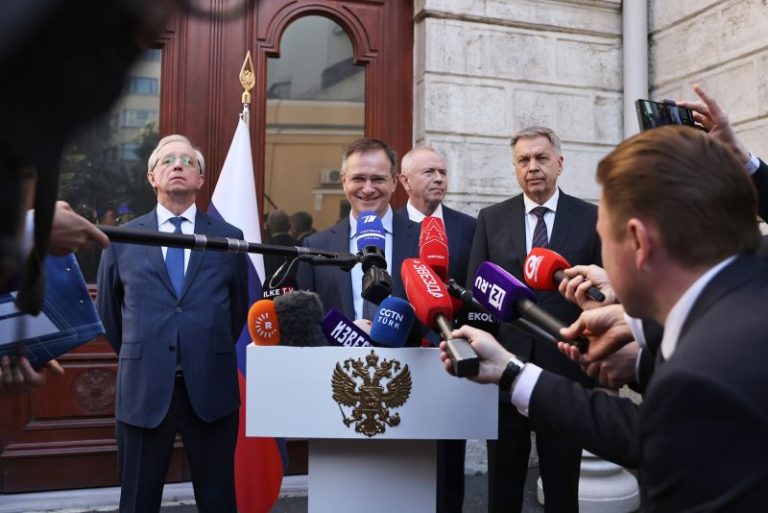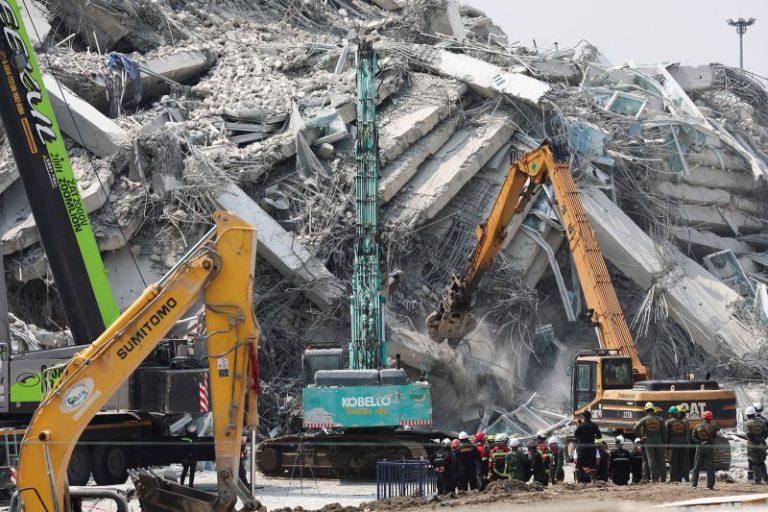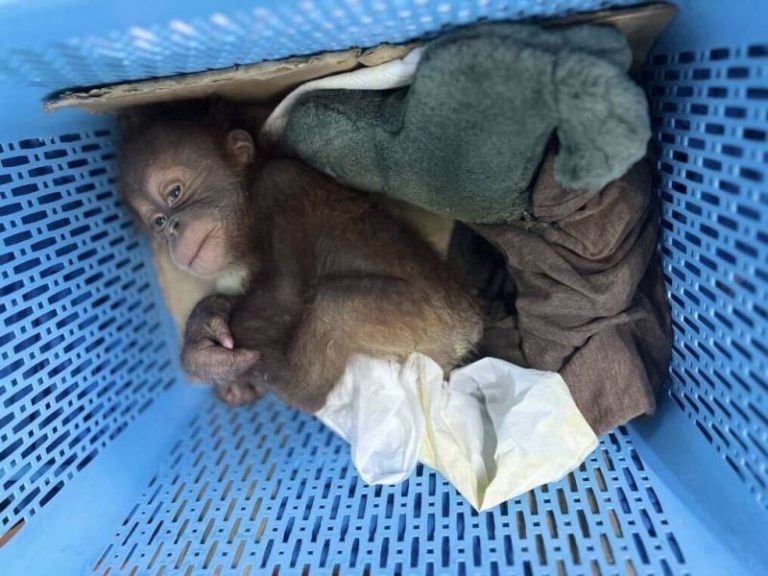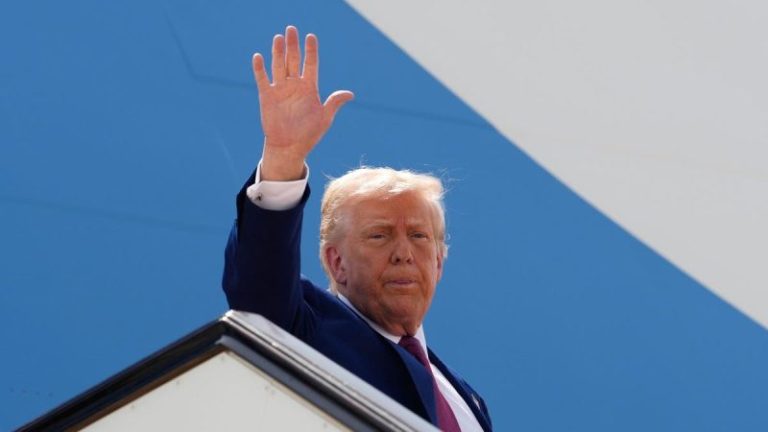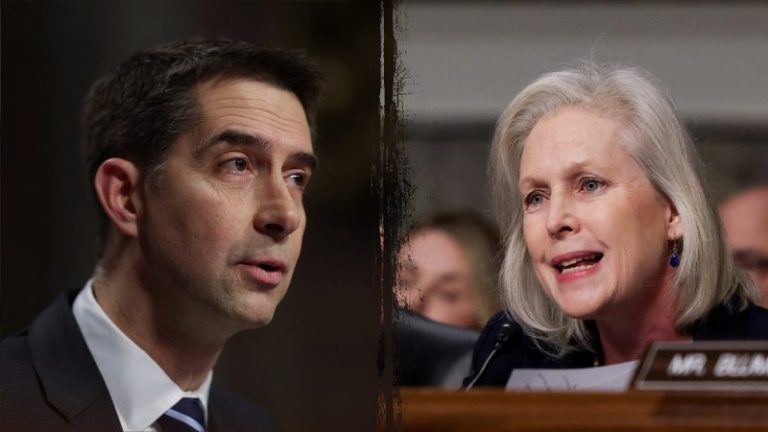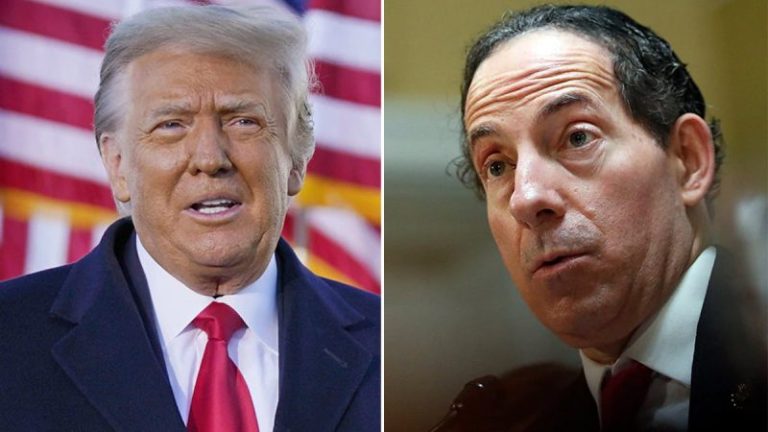In the end, it is the Kremlin’s plan playing out, and there appears to be little the White House will do about it.
Ukrainian President Volodymyr Zelensky’s decision to send defense minister Rustam Umerov to meet with a low-level Russian delegation in Istanbul was a difficult choice forced by necessity. Its audience is one man: US President Donald Trump.
Kyiv must show it is willing to take any step at all to foster any kind of peace, or else it risks Trump slowly finding the pro-Kremlin voices around him rising in volume, getting bored of the processes entirely, and/or limiting aid to Ukraine.
But ultimately, the peace process is going exactly how Russia wants it to. Slowly, and with the Kremlin as its scheduler.
In the past week, since France, the United Kingdom, Germany and Poland stood with Ukraine and demanded a 30-day unconditional ceasefire to start on Monday, we have learned a lot about Putin and Trump’s real emotions here.
Firstly, the main revelation is the Kremlin is unafraid of further sanctions, of European pressure, and not cajoled by Trump. For now, Russian President Vladimir Putin sees the potential domestic pitfalls of a photo opportunity alongside the US president and his Ukrainian enemy to be far greater than the possible damage incurring Trump’s wrath may cause.
His rejection of this initiative is a calculated risk that may already be paying off. Trump’s reaction – to suggest “nothing is gonna happen” until he and Putin meet – throws all expectations for diplomacy to the wind until the pair have a bilateral summit. It permits Putin to pursue any course at liberty, aware the White House head does really believe there can be progress until the two presidents meet in person.
It is not impossible a bilateral meeting could happen soon, or even that the talks in Istanbul on Friday could spawn a leadership summit at the weekend. But Putin is likely relishing seeing the peace process inch forwards with just enough faux sincerity that the White House won’t drop it. Why rush? His forces are amassing near the eastern frontline, clearly with a larger Russian strategic objective in mind.
Putin’s decision to reject the overtures of Trump to attend reveal two key parts of his thinking. He was willing to endure the further “massive sanctions” France threatened for rejecting the ceasefire – and then the Istanbul summit too. And he likely also foresaw and gambled on, correctly, Trump’s limited anger. The Kremlin head was even willing to risk three days of speculation – and with it reject cajoling from Trump – as to whether he would attend, by keeping the world waiting for the composition of the Russian Istanbul delegation.
Putin may have been negotiating a bilateral with Trump as part of Turkey talks, or explicit conditions or concessions ahead of a presidential summit, or may have had absolutely no intention of accepting Zelensky’s offer. We may never know.
Zelensky now faces an awkward moment during which he must hover around the talks in case they suddenly escalate, yet not be seen be waiting Putin’s next move. A convenient summit – pre-planned, he said – awaits in Albania for Friday, but then he must urgently return to the war.
It is slowly becoming apparent that Trump may continue to shy away from the extra sanctions and consequences for Russia that Europe and his White House have hinted at. The limited and “technical” nature of the Russian team in Istanbul will provide just enough reason for Trump to hold out hope of progress, and delay adding pain to Moscow. The talks will likely sputter ahead, see the Kremlin present a series of maximalist demands, and Ukraine angrily demand a ceasefire that Russia continually rejects.
Even with the addition of Trump’s senior officials to the mix on Friday, there will likely be minimal progress and talks about further talks. And that is exactly how the Kremlin wants it.

